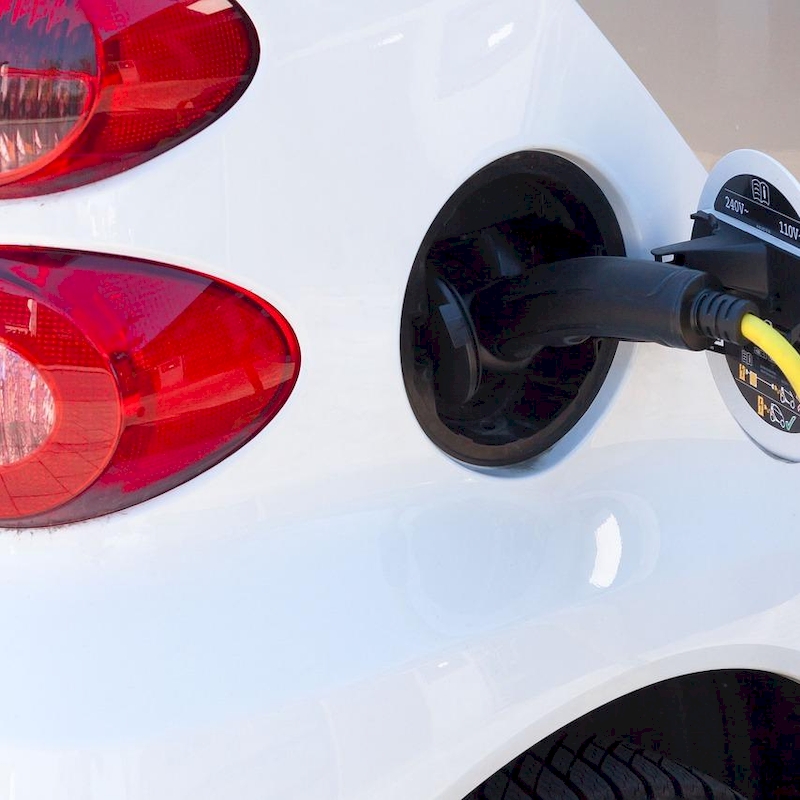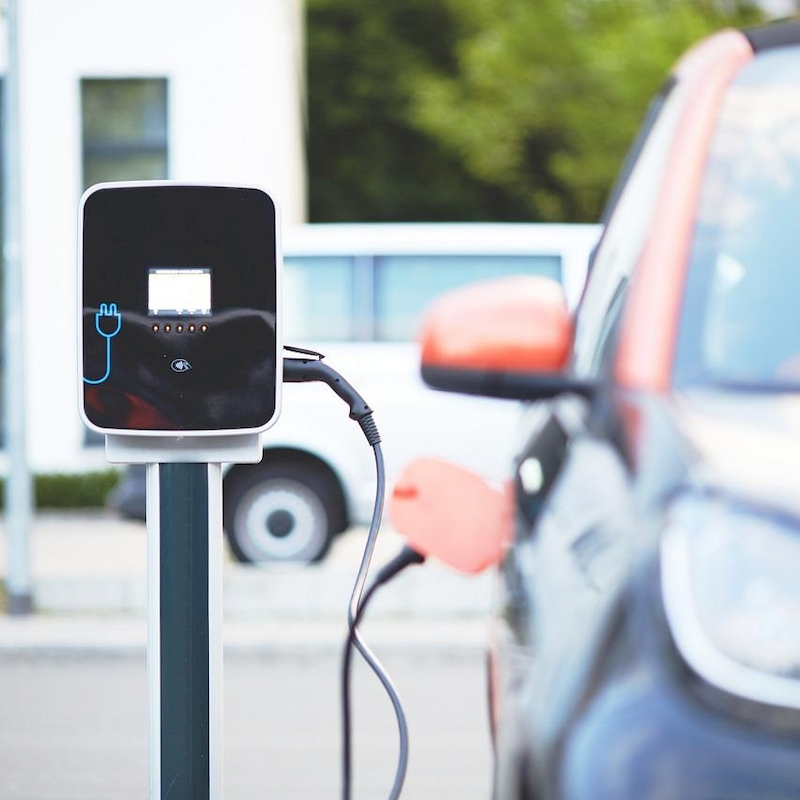Introduction
As the world progressively shifts towards sustainable energy solutions, electric vehicles (EVs) are becoming a popular choice for consumers looking to reduce their carbon footprint. However, a common question arises: must an electric vehicle be charged to gain energy? This article will explore various aspects related to EV charging. Alternative energy sources, efficiency, and the future of electric vehicle technology, giving readers a comprehensive understanding of the energy acquisition process in electric vehicles.

The Fundamentals of Electric Vehicles
What is an Electric Vehicle?
Electric vehicles are powered entirely or primarily by electric energy rather than traditional fossil fuels. They use electric motors and rely on rechargeable battery packs to store electricity for vehicle operation. This leads to a variety of benefits, including reduced emissions, lower fuel costs, and improved energy efficiency.
How Do Electric Vehicles Work?
Electric vehicles operate using an electric motor that converts electrical energy from the battery into mechanical energy, which drives the vehicle’s wheels. Here is a simplified explanation of how the energy flow within an electric vehicle works:
- Battery Packs: The battery pack is a crucial component of EVs, storing electrical energy until it is needed to power the motor.
- Inverter: The inverter converts direct current (DC) from the battery to alternating current (AC) for use by the electric motor.
- Electric Motor: The electric motor turns the stored electrical energy into kinetic energy, propelling the vehicle.
- Regenerative Braking: This process recovers some energy when the vehicle slows down, converting kinetic energy back into electrical energy to recharge the battery.
This basic understanding sets the stage for exploring the different ways electric vehicles acquire energy.
Must an Electric Vehicle be Charged to Gain Energy?
The fundamental principle of electric vehicles is that they must indeed charged to gain energy. However, there are alternative methods of energy acquisition that are becoming increasingly relevant in the context of modern transportation solutions.
The Charging Process
Charging an electric vehicle involves connecting it to an external power source, which replenishes the battery. There are several standard charging levels and methods:
Level 1 Charging
- Overview: This method uses a standard 120-volt AC outlet typically found in homes.
- Charging Time: Charging an EV on Level 1 can take several hours to fully recharge a depleted battery, making it suitable for overnight charging.
Level 2 Charging
- Overview: Level 2 chargers operate on a 240-volt supply and are common in public charging stations and private EV charging installations.
- Charging Time: This method is more efficient than Level 1, allowing for a full charge in about 4 to 8 hours, depending on the battery size.
DC Fast Charging
- Overview: DC fast chargers provide high-voltage direct current directly to the vehicle’s battery, facilitating rapid charging.
- Charging Time: This method can recharge a battery from 0 to 80% in as little as 30 minutes, which is particularly advantageous for long road trips.
Charging is fundamental for the operation of electric vehicles, as technology advances, alternative energy sources are being explored.
Alternative Energy Sources and Methods
Regenerative Braking
Regenerative braking is one of the most intriguing aspects of electric vehicle technology. This system allows an electric vehicle to recover energy usually lost during braking, turning it back into electrical energy.
- How It Works: When the driver applies the brakes, the electric motor runs in reverse. This converts some of the kinetic energy back into electricity, which is then fed back into the battery.
- Energy Recovery: During city driving where frequent stopping and starting occur, regenerative braking can significantly improve overall energy efficiency.
Solar Panels
The integration of solar panels on vehicles is a burgeoning area in electric vehicle technology, suggesting a future where vehicles can sometimes generate their own energy.
- How It Works: Cars equipped with solar panels can capture sunlight, converting it into electricity that can either power the electric motor or recharge the battery.
- Practical Limitations: Solar panels can aid in electrical generation, the amount of energy captured is currently limited by the available surface area on a vehicle and weather conditions.
Vehicle-to-Grid (V2G) Technology
Vehicle-to-grid technology is an innovative solution that allows EVs to interact with the electrical grid.
- How It Works: EVs can deliver stored energy back to the grid during peak demand times. This process not only helps stabilize the grid but also allows EV owners to earn credits or payments for their supplied energy.
- Energy Management: This responsive energy management helps to optimize energy use and maintain grid reliability, while also reducing overall demand on traditional power plants during peak times.
The Efficiency of Electric Vehicles
One of the notable advantages of electric vehicles is their inherent efficiency when compared to conventional vehicles powered by internal combustion engines (ICEs).
Energy Conversion Efficiency
- Electric motors convert over 60% of electrical energy from the grid to power at the wheels, while gasoline vehicles typically convert only about 20% of the energy stored in gasoline to move the vehicle.
- This greater energy conversion efficiency means that electric vehicles require less energy from charging to achieve equivalent power and performance.
Impact of Charging Infrastructure
The growth of charging infrastructure across urban and rural areas is also improving the accessibility and feasibility of charging electric vehicles. Considerations include:
- Availability: Increased public and private charging stations make it easier for EV drivers to find convenient places to charge.
- Faster Charging Options: Continued development of faster charging technologies reduces the downtime typically associated with recharging electric vehicles, leading to a better user experience.
Cost Savings over Time
While the initial purchase price of electric vehicles can be higher than that of traditional vehicles, the long-term savings on fuel and maintenance can be substantial.
- Fuel Costs: Electricity is generally less expensive per mile than gasoline, especially with options for home charging.
- Maintenance: Electric vehicles have fewer moving parts and require less frequent maintenance than gasoline vehicles, translating to lower operating costs over time.
The Evolution of Battery Technology
Battery technology determines how effectively an electric vehicle can gain energy and power itself. Advances in battery technology are crucial to the sustainability and performance of EVs.
Lithium-ion Batteries
Lithium-ion batteries are currently the dominant technology in EVs, favored for their high energy density and performance.
- Efficiency and Longevity: These batteries have shown improved energy capacity and cycle life, making them a reliable option for electric vehicles.
Solid-State Batteries
The development of solid-state batteries represents a significant potential leap in EV technology.
- Safety and Energy Density: Solid-state batteries promise higher energy density, making it possible to store more power in a smaller package. They also offer enhanced safety by reducing the risk of fires associated with traditional lithium-ion batteries.
- Market Viability: While they are still in the research and development phase, the commercialization of solid-state batteries could revolutionize electric vehicles by allowing longer ranges, shorter charging times, and increased longevity.
The Future of Electric Vehicles and Energy Acquisition
The future of electric vehicle technology is poised to evolve rapidly as innovation drives improvements in efficiency, charging methods, and energy sources. Here are some trends to watch:
Increased Use of Renewable Energy
- Green Charging Solutions: Above all, more renewable energy sources, such as wind and solar, electric vehicles can be charged more sustainably. Above all, this will further enhance the environmental benefits of switching to electric transportation.
- Local Energy Solutions: Smart grids and localized renewable energy sources enable EV owners to charge their vehicles using energy generated right in their communities.
Autonomous Electric Vehicles
- Integration with Charging Systems: Future advancements could see autonomous EVs that can park themselves in designated charging stations, making energy acquisition seamless and minimizing the time spent charging.
- Smart Energy Management: As autonomous vehicles become integrated with smart city technologies. Energy management systems may allow the vehicles to optimize charging times based on grid load and renewable energy availability.
Regulations and Incentives
Governments around the globe are promoting the transition to electric vehicles through various incentives and regulations.
- Incentives: Tax credits, rebates, and investments in charging infrastructure make it easier for consumers to purchase and own electric vehicles.
- Emissions Regulations: Stricter emissions regulations push manufacturers to develop more electric vehicle options, increasing consumer choice and availability.




